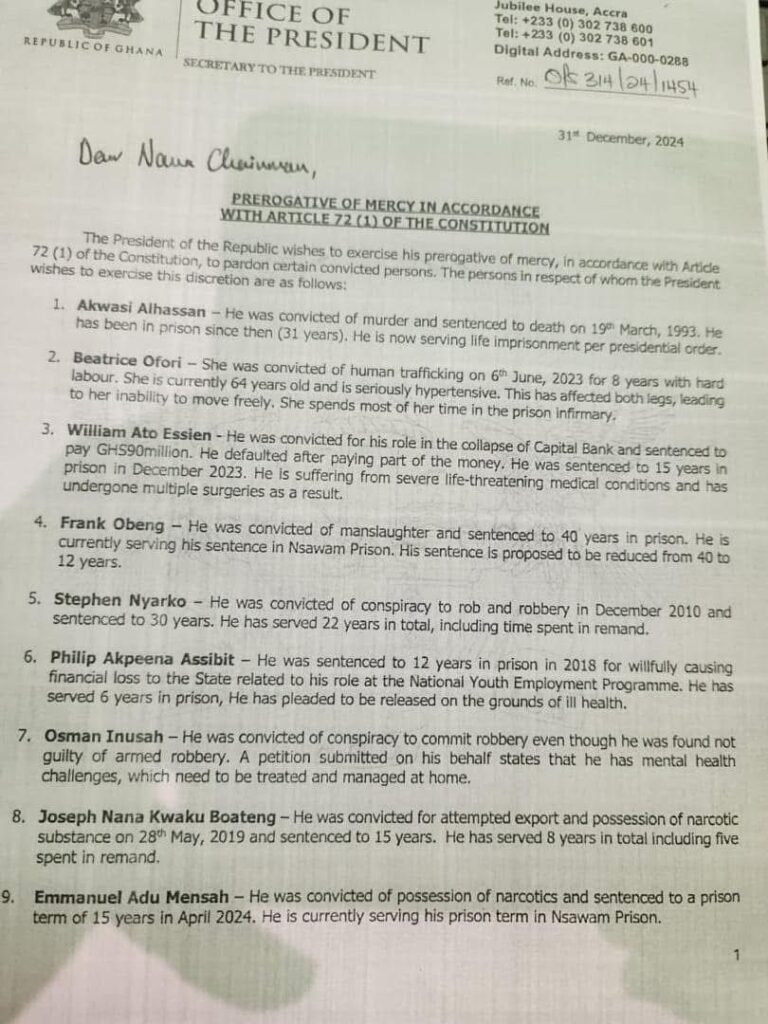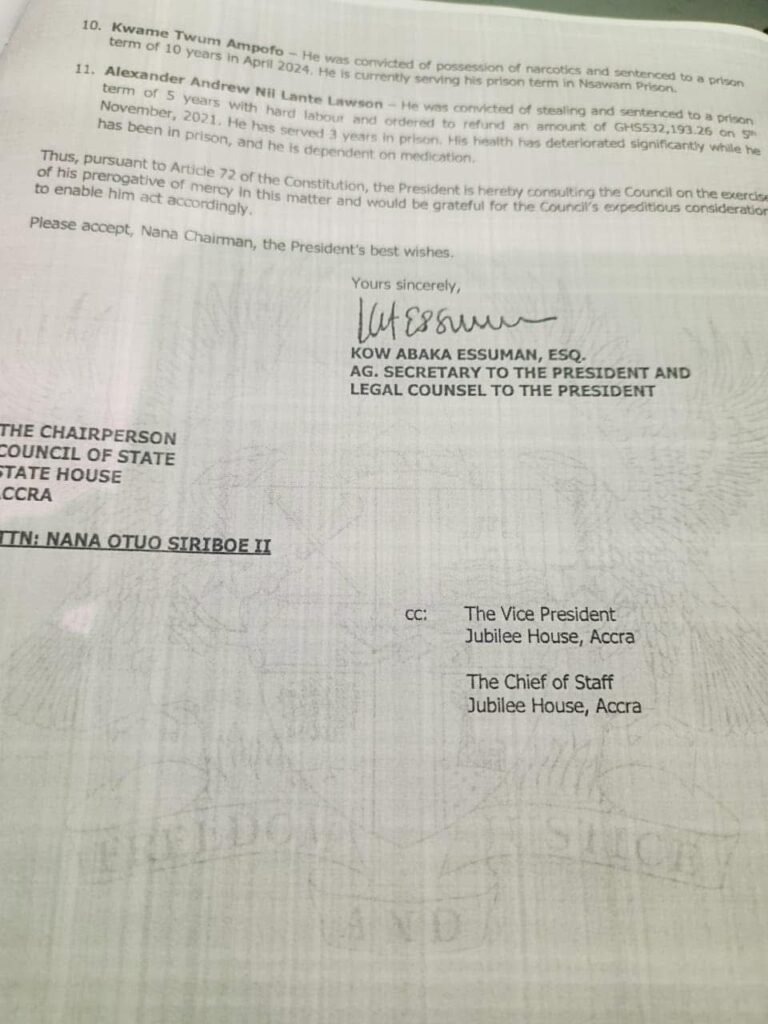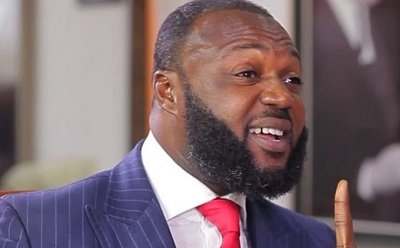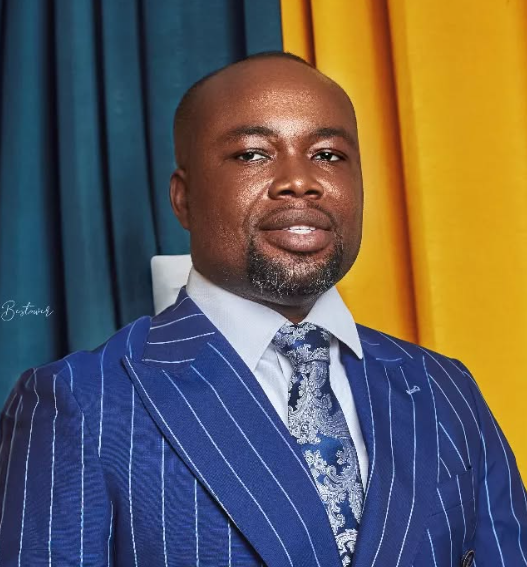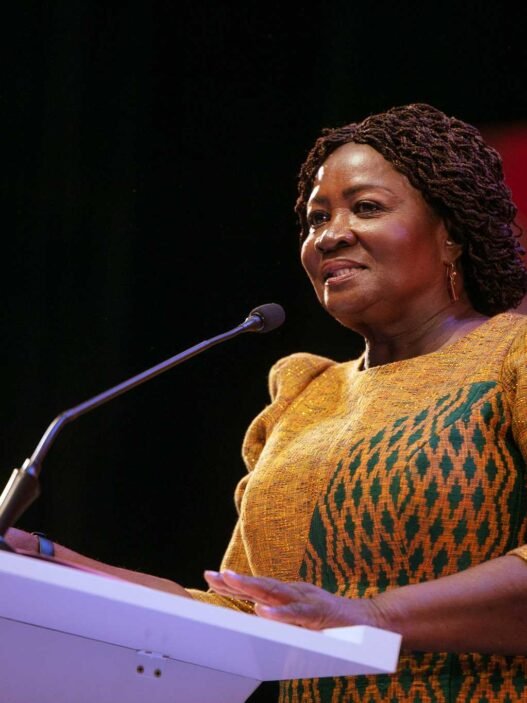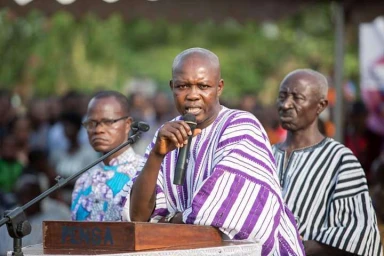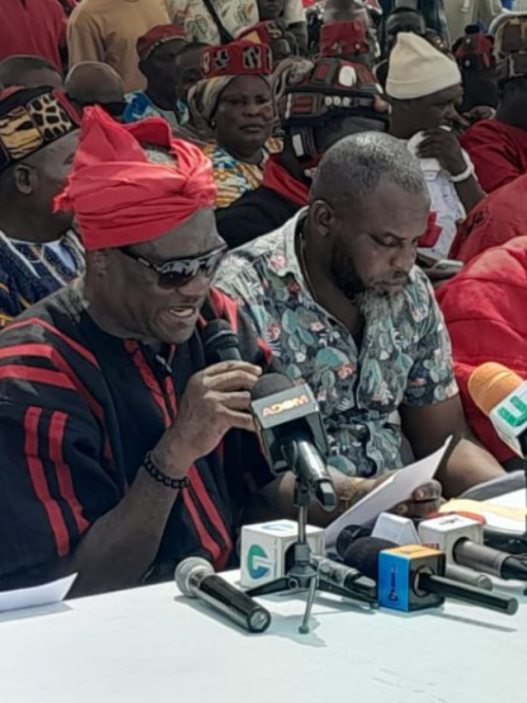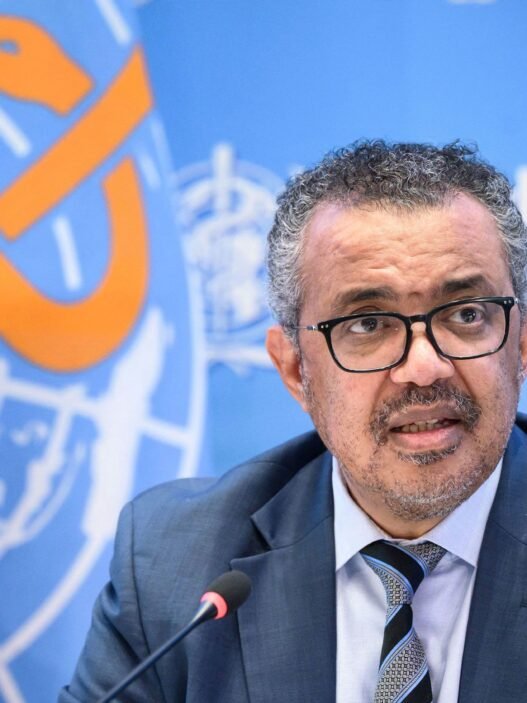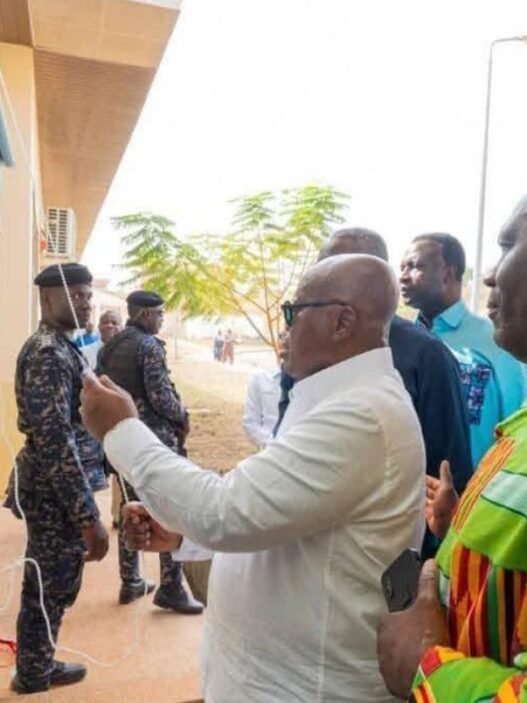President Nana Addo Dankwa Akufo-Addo has exercised his constitutional prerogative of mercy to pardon nine convicted individuals, including high-profile figures such as Ato Essien, former CEO of the defunct Capital Bank, and Philip Assibit, a key figure in the GYEEDA corruption scandal. This decision, communicated in a letter dated December 31, 2024, and addressed to the Council of State, has sparked widespread debate over its implications for justice, governance, and accountability in Ghana.
Highlights of the Clemency
The pardons, granted under Article 72 (1) of the 1992 Constitution, included individuals convicted of offenses ranging from economic crimes to murder. Among the key beneficiaries are:
- Ato Essien: Convicted for his role in the collapse of Capital Bank, Essien defaulted on a restitution agreement to repay GHS90 million and was sentenced to 15 years in December 2023. His pardon is reportedly due to severe health challenges.
- Philip Assibit: Sentenced to 12 years in 2018 for causing financial loss to the state during his tenure at the National Youth Employment Programme (NYEP). Assibit, who served six years of his term, petitioned for clemency on health grounds.
- Beatrice Ofori: Convicted of human trafficking in 2023 and sentenced to eight years, Ofori’s pardon is attributed to serious health complications.
- Akwasi Alhassan: Convicted of murder in 1993 and serving a life sentence, Alhassan’s clemency reflects the President’s focus on long-term incarceration cases.
- Emmanuel Adu Mensah: Sentenced in April 2024 for narcotics possession, Adu Mensah’s case highlights ongoing debates around drug-related incarcerations.
The Case of Ato Essien
Essien’s legal troubles stemmed from the misappropriation of GHS620 million in liquidity support from the Bank of Ghana, which led to Capital Bank’s collapse during Ghana’s financial sector cleanup. His pardon has reignited public discourse over:
- Accountability: Critics argue that Essien’s pardon undermines the fight against white-collar crime.
- Deterrence: The move raises concerns that high-profile offenders may perceive reduced consequences for economic crimes.
- Public Trust: The pardon may erode confidence in Ghana’s financial systems and governance structures.
Philip Assibit and GYEEDA Scandal
Assibit’s role in the GYEEDA scandal, one of Ghana’s most significant corruption cases, marked a turning point in anti-corruption efforts. While his co-convict, Abuga Pele, served his full sentence, Assibit’s release mid-term highlights inconsistencies in the application of justice.
Balancing Mercy and Justice
The clemency underscores the tension between compassion and accountability. While Akufo-Addo cited health concerns and long-term incarceration as factors for the pardons, critics argue that the move:
- Sets a Precedent: Granting clemency to financial criminals could weaken anti-corruption measures.
- Reinforces Inequality: The pardons highlight disparities in how justice is applied to influential individuals versus ordinary offenders.
- Challenges Deterrence: Reducing sentences for high-profile convicts risks emboldening others to commit similar offenses.
Public and Civil Society Reactions
The decision has sparked mixed reactions:
- Critics: Anti-corruption advocates argue the pardons send the wrong message, particularly amid Ghana’s ongoing struggle with economic challenges and governance issues.
- Supporters: Proponents contend that clemency fosters reconciliation and reflects compassion, particularly for convicts with health challenges.
Prominent voices, including legal experts and civil society groups, have called for reforms to the pardon process to ensure transparency and fairness.
The Clemency List: A Broader Look
The nine pardoned individuals reflect a diverse range of offenses:
| Name | Offense | Original Sentence | Reason for Pardon |
|---|---|---|---|
| Akwasi Alhassan | Murder | Life imprisonment | Long-term incarceration |
| Beatrice Ofori | Human trafficking | 8 years | Severe health issues |
| William Ato Essien | Financial crimes | 15 years | Severe health issues |
| Frank Obeng | Manslaughter | 40 years | Reduction to 12 years recommended |
| Stephen Nyarko | Conspiracy to rob | 30 years | Served 22 years |
| Philip Akpeena Assibit | Financial crimes (GYEEDA) | 12 years | Ill health |
| Osman Inusah | Conspiracy to commit robbery | 10 years | Mental health challenges |
| Joseph Nana Kwaku Boateng | Narcotics possession/export | 15 years | Served 7 years |
| Emmanuel Adu Mensah | Narcotics possession | 15 years | Recent incarceration |
Conclusion: Clemency or Controversy?
President Akufo-Addo’s final-year pardons highlight the complexities of balancing justice and mercy. While the clemency demonstrates compassion, particularly for individuals with health challenges or extended incarceration, it also raises critical questions about accountability, deterrence, and the equitable application of justice.
As Ghana moves forward, the pardons will remain a contentious part of Akufo-Addo’s legacy, prompting ongoing debates over governance, the rule of law, and the fight against corruption.
Attached is an excerpt from the President’s letter to the Council of State, seeking advice under Article 72(1) on pardoning certain individuals:
